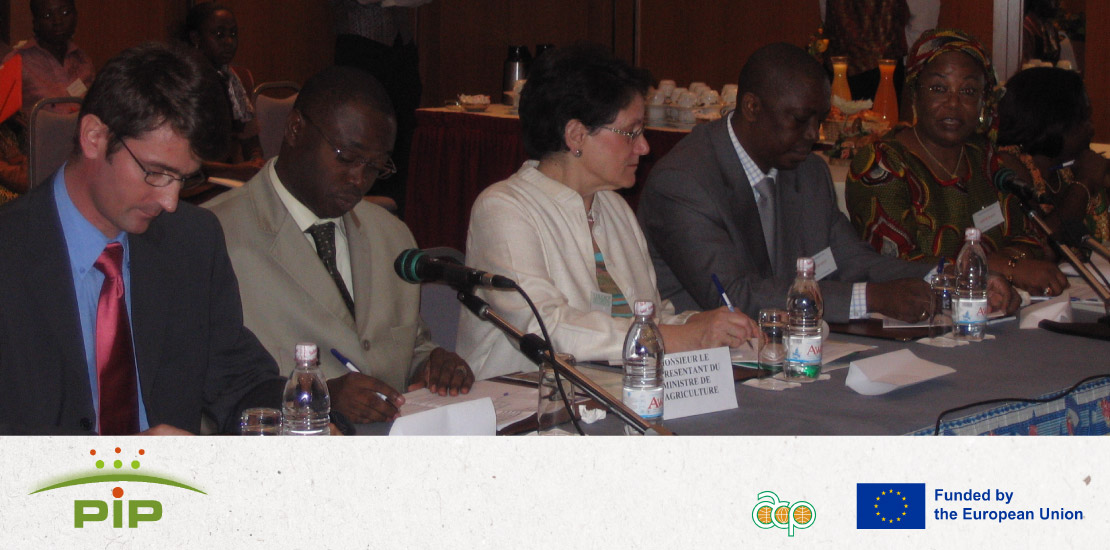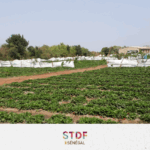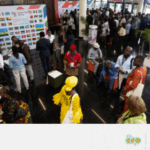- 10/04/2024
- Posted by: Sandra Borma
- Category: News

Flashback 2005: task forces in the fruit and vegetable sector, strengthening public-private dialogue
(Source : PIP Magazine, July 2005)
“(…)The European Union defines specific food safety and phytosanitary standards for all types of food, whether produced on its territory or imported from third countries. Naturally the ACP fruit and vegetable export sector is obliged to abide by these rules. In that context, ACP private operators and the public sector have to work together to develop strategies enabling them to take up current and future challenges. With that aim in mind, the PIP programme supports the creation of Task Forces as structures for private-public dialogue.
Changing food safety requirements on the European and global market make it increasingly difficult for ACP fresh fruit and vegetables exporters to come up with personalised responses to the different challenges they face. The coordinated intervention of the public and private sectors is therefore increasingly crucial. To promote and enhance public-private dialogue, the PIP programme is currently investing considerable efforts, as part of its Local Capacity Building drive, to set up and develop Task Forces in ACP States.
To date, nine national Task Forces have been created, six in West and Central Africa, namely Senegal, Ghana, Burkina Faso, Mali, Guinea and Cameroun; two in East Africa, namely Kenya and Uganda; and one in the Caribbean.
Sharing knowledge and developing joint strategies
The Task Forces are permanent dialogue and working groups, which bring together the private- and public-sector players active in the fruit and vegetable sector. These include production companies, professional organisations, laboratories, legislative and monitoring bodies. They serve as forums for discussion and exchange, enabling members to share their knowledge with a view to developing strategies and implementing actions based on consultation and consistency. Companies can use these structures to let the public sector know their needs and the actions they think should be taken. These structures allow the public sector to get first-hand information from private operators and to receive some feedback from them on policies that have been implemented and measures being considered. A well structured and active Task Force can act as a lobbying group with national authorities as well as with national and international donors on a variety of SPS (sanitary and phytosanitary) and trade issues. In time, the national Task Forces could create structures at regional level that would have real powers of representation and negotiation for issues of common interest, especially on technical and trade matters. These regional Task Forces could then be grouped into a central structure for representation on important export markets.
One can clearly see that Task Forces play a very important role and that their potential for action is immense. That is why an analysis of Task Force experiences and difficulties was carried out over the last few months under the PIP programme . The evaluation gave rise to a reference paper entitled “Guidelines for the Implementation and Functioning of Task Forces”, which presents recommendations for setting up and managing a Task Force. There is no standard profile of a Task Force, each has to be adapted to the context, structures and strategies of the country’s fruit and vegetable sector. On the other hand, there are what can be called “keys to success” which are reflected in certain ground rules to be observed, particularly as regards the establishment and representation of the structure as well as its group work and long-term sustainability (…)”





